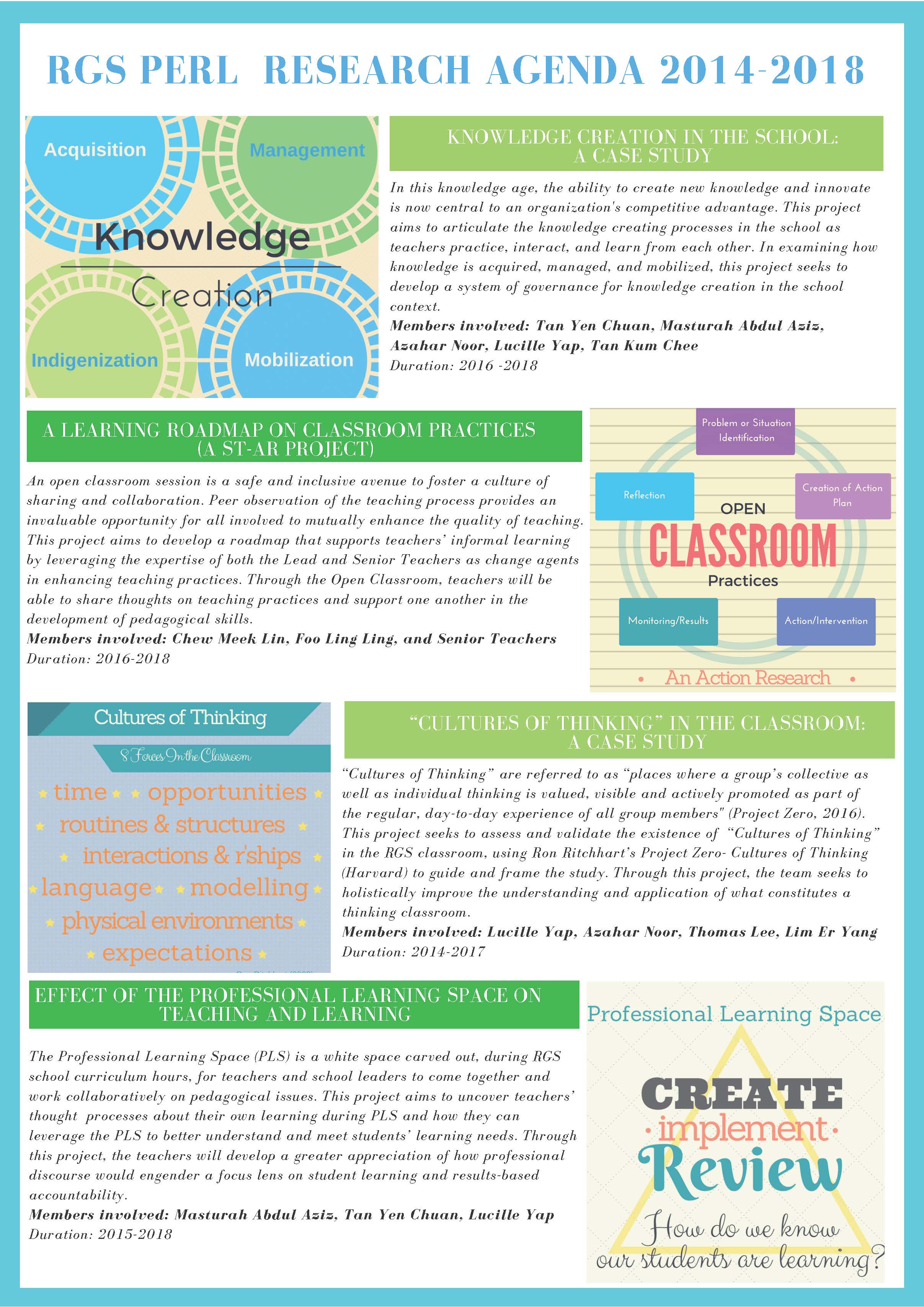PERL School Wide Research
School-Wide Research Undertaken by PeRL From 2014-2018

The Following Projects Were Conducted by the PeRL Research Team:
1 . Teacher Belief and Effective Use of Technology in Teaching & Learning (2014)
Impact: The research on Teacher Belief and Effective use of Technology showed that the teachers generally hold robust and tenacious beliefs towards technology-enhanced teaching and learning. What teachers require is closer attention to the pedagogical possibilities of the various ICT platforms, linking specific ICT-enhanced instructional strategies with the topic. Using these findings, the Learning Resources and Technology team has adopted a needs-based professional development approach, focusing primarily on good pedagogy and how it can be complemented by ICT tools.
2 . Differentiated Instructions for High Ability Learners in a Regular Classroom: A Case Study in an Independant School (2015)
Impact: The research on differentiated instructions for high ability learners showed that teachers generally practice different forms of differentiation in the classroom. However, the findings highlighted that while the needs of high and low ability learners were catered to, more attention is needed to cater to the learning of the "middle group" in the classroom. Using these findings, the investigators were able to address concerns and challenges that teachers face in implementing differentiation in the classroom. The investigators were also able to support teachers in developing competency in differentiated instruction, through the creation of a differentiation matrix for teachers' self-assessment in their differentiation practices.
3. The Role of a Professional Learning Community in Informing Teacher Practice: A Case Study in Raffles Girls School (2016 - 2017)
Impact: The research on the professional learning community in RGS, known as the Professional Learning Space (PLS), showed that the PLS has the strongest effect in developing teachers' assessment literacy and curriculum design knowledge and skills. However, the findings also highlighted the untapped potential of the PLS, such as in addressing student learning needs through collective review of practices and facilitating teachers' responsiveness to student learning. Based on the findings, the investigators are actively engaging members of the staff to leverage the PLS for more review practices which center on the evidence of student learning, such as through the sharing of knowledge gained from practitioner inquiry, discussing classroom practices with a student-centered perspective, and utilizing student data to support classroom decision-making.

